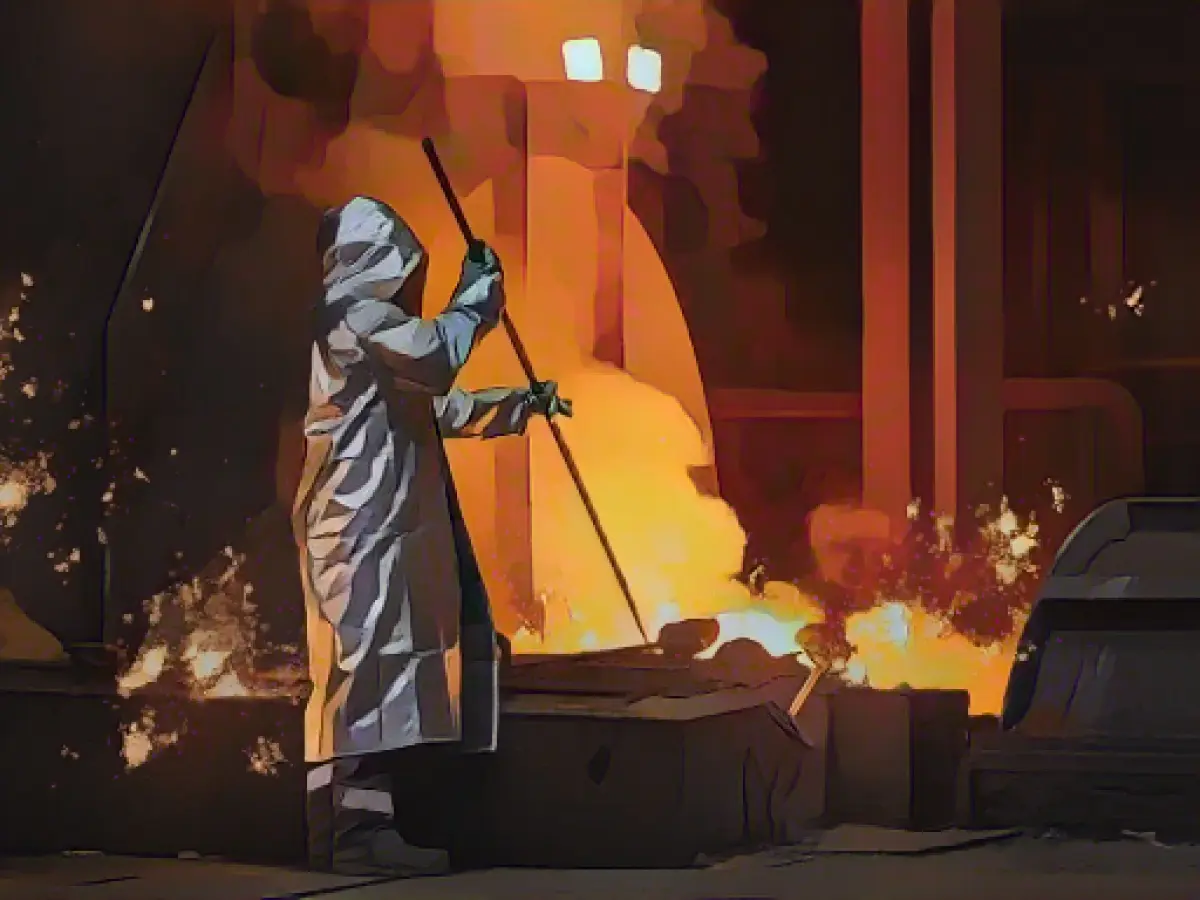Steel wage negotiations begin: Bid 3.1 percent
Wage negotiations for the north-west German and east German steel industry began in Düsseldorf on Monday with an employer offer. The employers offered a pay increase of 3.1 percent over a period of 15 months. IG Metall rejected this as "completely inadequate". It is demanding an increase of 8.5 percent over 12 months.
The union explained that high inflation had eaten a large hole in the wallets of many employees over the last year and a half and was still putting a strain on people today. The employers stated that in view of expected inflation of less than three percent, the demand of 8.5 percent was "completely out of date". The first round for the two collective bargaining districts took place jointly in Düsseldorf.
The employers "categorically" rejected IG Metall's demand for a 32-hour week with full pay compensation. According to the steel employers' association, this was "neither organizable nor financially viable".
The district manager of IG Metall Berlin-Brandenburg-Saxony and lead negotiator for the East German steel industry, Dirk Schulze, was convinced that the reduction in working hours would help in the search for skilled workers. "A good work-life balance is very important, especially for young people. Shorter working hours are therefore a competitive advantage over other sectors," he said according to the press release. A reduction in working hours also leads to fewer absences due to illness and higher productivity.
Knut Giesler, district manager of IG Metall NRW and head of negotiations for NRW, emphasized the social responsibility of employers. After the switch to direct reduction plants, fewer people would be needed for green steel production, he said. "The reduction in working hours with full pay compensation plays a key role here. It secures employment and pay."
Around 68,000 people are employed in the steel and iron industry in North Rhine-Westphalia, Bremen and Lower Saxony and around 8,000 in the East German steel industry. The next collective bargaining for the North-West German steel industry has been agreed for November 23. For the eastern German steel industry, the parties want to continue negotiations on November 24. The peace obligation ends at the end of November.
The trade unions, specifically IG Metall, highlighted the impact of high inflation on workers' wallets and demanded a 8.5% wage increase over 12 months. In response, steel employers argued that given expected inflation below 3%, the union's demand was "completely out of date." Additionally, trade unions proposed a 32-hour week with full pay compensation, which steel employers deemed "neither organizable nor financially viable."
Source: www.dpa.com








